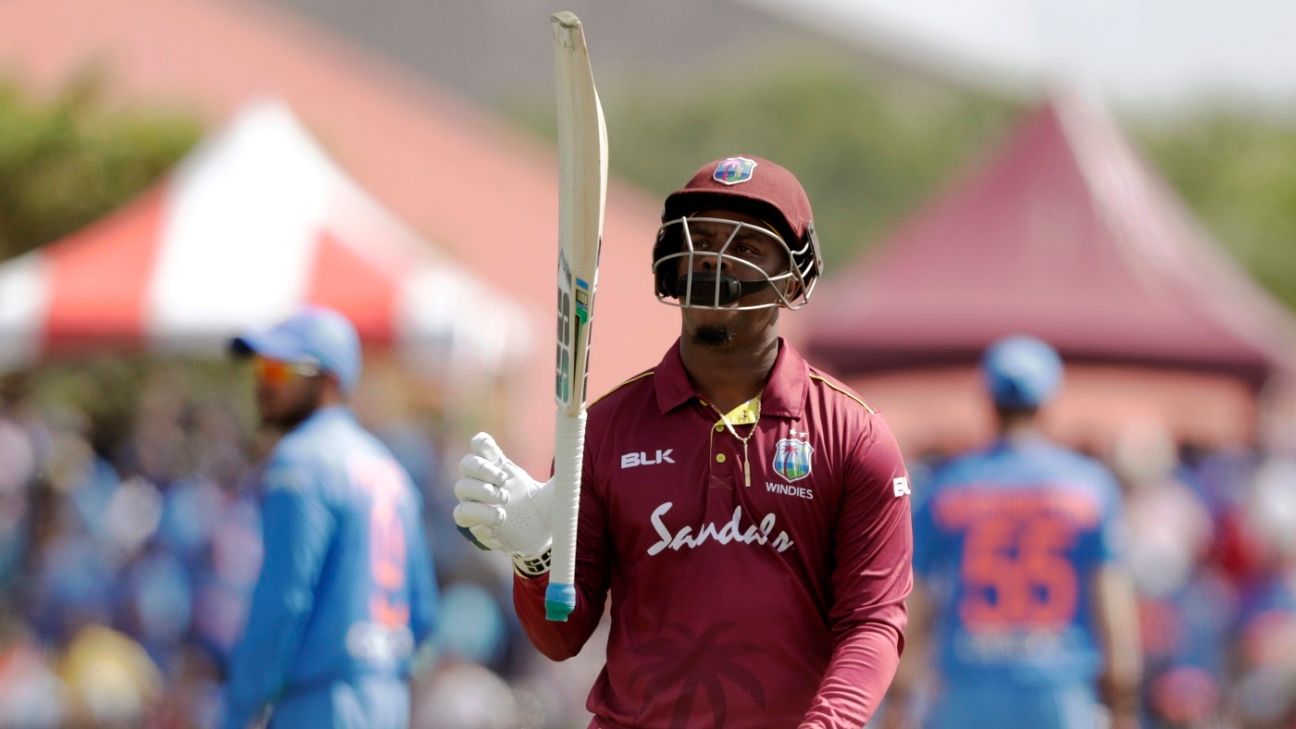
One minute, the stadium was abuzz with chatter. West Indies were very much in the game - their death bowling had limited India to under 300 and with Nicholas Pooran and Roston Chase in the middle, they looked like they had it under control.
Then wickets fell like a pack of cards. Pooran. Chase. Carlos Brathwaite. Kemar Roach.
The crowd started to clear. It was an all too familiar feeling. It was an all too familiar sight. West Indies are almost always close, but somehow, almost always short.
"They say in the islands that the West Indies know how to lose," Gerald Ramkissoon, former chief curator and current maintenance head at Queen's Park Oval said. "Same old, same old West Indies," was the take of Ian Ramsey, part of the pitch staff at Queens Park Oval.
The team has been struggling for a while - they last won a bilateral ODI series in 2014, against Bangladesh. But experts and fans had renewed hope before the World Cup, particularly given a drawn series against England leading up to the event. The general perception was that the squad had the tools - with their deep and exciting batting line-up and the in-form pace attack - needed to succeed. Now, it was all about execution.
That's exactly where they failed, close to winning several matches but not going over the line. They were 15 runs short in their run chase against Australia, a heart-breaking five against New Zealand, and 23 against Sri Lanka. Those three results going their way could have meant a semi-final spot for the team.
"Again, we were in front today and then we found a way to give away our wickets, so it's just a matter of us now learning from our mistakes and trying to dig deeper," West Indies coach Floyd Reifer said after the defeat to India in the second ODI, which put them 1-0 behind in the three-match series with one game to go.
Captain Jason Holder has been saying that their main batting focus is taking time with the new ball, understanding the conditions, and then scoring runs at a steady pace. But that approach runs contrary to how many West Indies batsmen usually play - the slam-bang T20 style. And that's the style that has resulted in the batsmen, particularly the middle order, making careless shot choices.
Ramkissoon reminisced about the time when West Indies had someone like Shivnarine Chanderpaul, whom bowlers would spend hours trying to dislodge.
"T20, especially CPL, Big Bash and IPL changed everything," Ramkissoon said. "Don't get me wrong, the current team, Pooran, (Evin) Lewis and (Shimron) Hetmyer, they have the ability and the game to take West Indies far, but it's about how you approach cricket, how you play the game."
Both Ramkissoon and Ramsey feel that the relative lack of experience in the line-up is crucial. "(Kieron) Pollard should have been in this series. He played in the IPL, he knows how most of the Indian players work, he was in good form - he would have helped players on the field, bowled and batted, we call him the triple threat in Trinidad," Ramkissoon said.
With Gayle's looming retirement, there is also the gaping hole that is West Indies' opening spot. Evin Lewis seems more or less set at the top, but without a solid partner, West Indies will struggle to build the foundation that Holder is keen on.
These are just some among a number of issues West Indies need to address sooner rather than later. After all, among the fans, the cricket public, and even the local press, there is continuing hope for the glory days of the 1970s and 1980s to return one day. If it is within reach, as some feel, the players need to do what they can to grab it.















 Phone: (800) 737. 6040
Phone: (800) 737. 6040 Fax: (800) 825 5558
Fax: (800) 825 5558 Website:
Website:  Email:
Email: 






